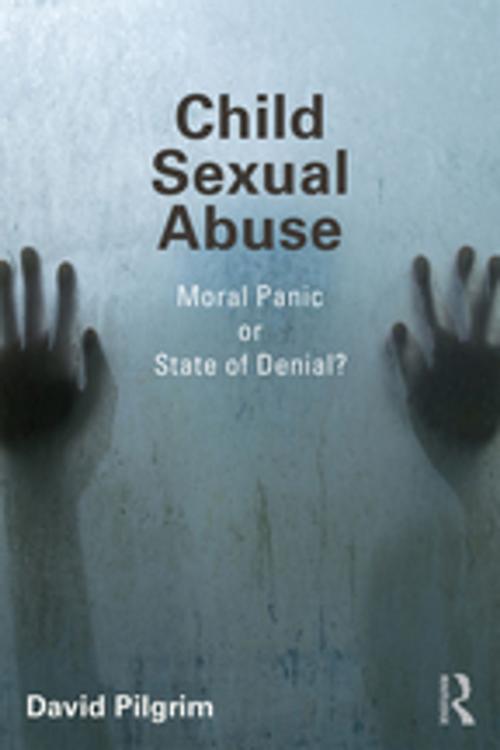Child Sexual Abuse
Moral Panic or State of Denial?
Nonfiction, Social & Cultural Studies, Social Science, Social Work| Author: | David Pilgrim | ISBN: | 9781351264549 |
| Publisher: | Taylor and Francis | Publication: | January 30, 2018 |
| Imprint: | Routledge | Language: | English |
| Author: | David Pilgrim |
| ISBN: | 9781351264549 |
| Publisher: | Taylor and Francis |
| Publication: | January 30, 2018 |
| Imprint: | Routledge |
| Language: | English |
Child sexual abuse is a major public policy challenge. Many child protection measures were beginning to reduce its occurrence. However, that progress was impeded by online grooming, the downloading of indecent images of children and even their abuse online in real time. This now places major demands on national and international policing. The book brings together groundbreaking case studies from a wide range of settings. As well as family members and those near the home, offenders can also be found in religious, sporting and childcare settings.
This extensive picture is drawn deliberately in order to highlight a split in the academic analysis of child sexual abuse. The mainstream or orthodox view, defended by the author, is that child sexual abuse is an under-reported crime. However, a minority view, presented but criticised, is that it is a moral panic created by public hysteria, child protection experts and campaigning politicians. By the end of the book, this division of academic opinion and its implications for public policy are explored in detail.
The book is essential reading for anyone interested in preventing child sexual abuse and the dilemmas of responding to both victims and perpetrators. It will be of particular use to practitioners in social work, the police and in the mental health professions.
Child sexual abuse is a major public policy challenge. Many child protection measures were beginning to reduce its occurrence. However, that progress was impeded by online grooming, the downloading of indecent images of children and even their abuse online in real time. This now places major demands on national and international policing. The book brings together groundbreaking case studies from a wide range of settings. As well as family members and those near the home, offenders can also be found in religious, sporting and childcare settings.
This extensive picture is drawn deliberately in order to highlight a split in the academic analysis of child sexual abuse. The mainstream or orthodox view, defended by the author, is that child sexual abuse is an under-reported crime. However, a minority view, presented but criticised, is that it is a moral panic created by public hysteria, child protection experts and campaigning politicians. By the end of the book, this division of academic opinion and its implications for public policy are explored in detail.
The book is essential reading for anyone interested in preventing child sexual abuse and the dilemmas of responding to both victims and perpetrators. It will be of particular use to practitioners in social work, the police and in the mental health professions.















